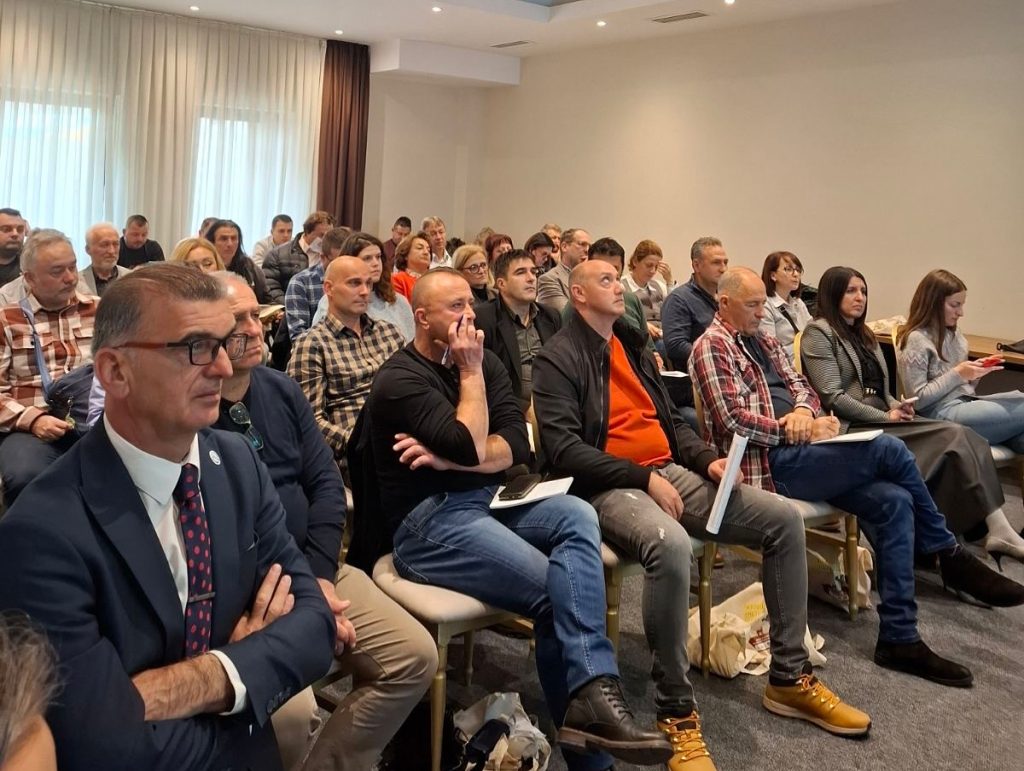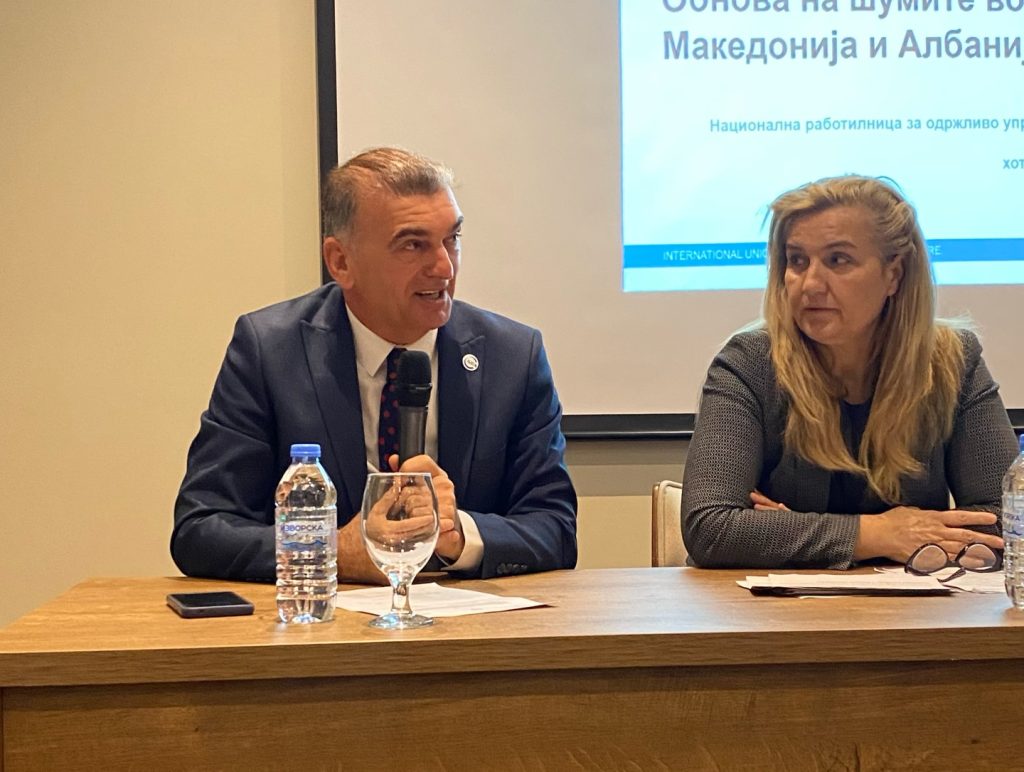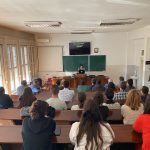 The Macedonian Ecological Society, in collaboration with the International Union for Conservation of Nature (IUCN), organized a two-day national workshop on sustainable forest management.
The Macedonian Ecological Society, in collaboration with the International Union for Conservation of Nature (IUCN), organized a two-day national workshop on sustainable forest management.
The workshop was attended by nearly 50 participants who had the opportunity to follow presentations from speakers and exchange their views on the topic.
The Director of the IUCN Regional Office, Oliver Avramovski, highlighted the workshop as a chance to enhance communication and collaboration among stakeholders from various sectors. He referred to protected areas as the cornerstone of nature conservation. Avramovski emphasized that one of the goals of the global framework for biodiversity is to ensure that 30% of terrestrial and marine ecosystems are designated as protected areas and that Macedonia, as a signatory of the declaration, should strive toward achieving this goal.

The State Secretary from the Ministry of Agriculture, Forestry, and Water Economy, Daniela Irotova Lazareva, underscored the importance of sustainable forest management. She noted that the Ministry has signed several memorandums on sustainable forest management and is continuously working on devising new measures aimed at forest restoration and the rehabilitation of fire-damaged forests.
Professor Nikolcho Velkovski from the Faculty of Forestry in Skopje presented the current state of forests in Macedonia. Most of the forests are deciduous, comprising 59%, with the remainder being mixed and coniferous forests. Coniferous forests are the most endangered, partly due to unfavorable climatic conditions. He stated that 40% of the country’s territory is covered by forests, a figure higher than in EU countries and even Switzerland. However, a significant portion of these forests are degraded or in a state of degradation. Only 30% of the country’s forests are high-stemmed, while 70% are low-stemmed and degraded, with low biological diversity and limited potential for regeneration.
This event was organized as part of the project “Northern Forests Initiative – Restoring Forests in Macedonia and Albania,” which is being implemented in collaboration with PPNEA from Albania and the IUCN Regional Office for Eastern Europe and Central Asia. The project is fully supported by the Swedish Postal Foundation.



